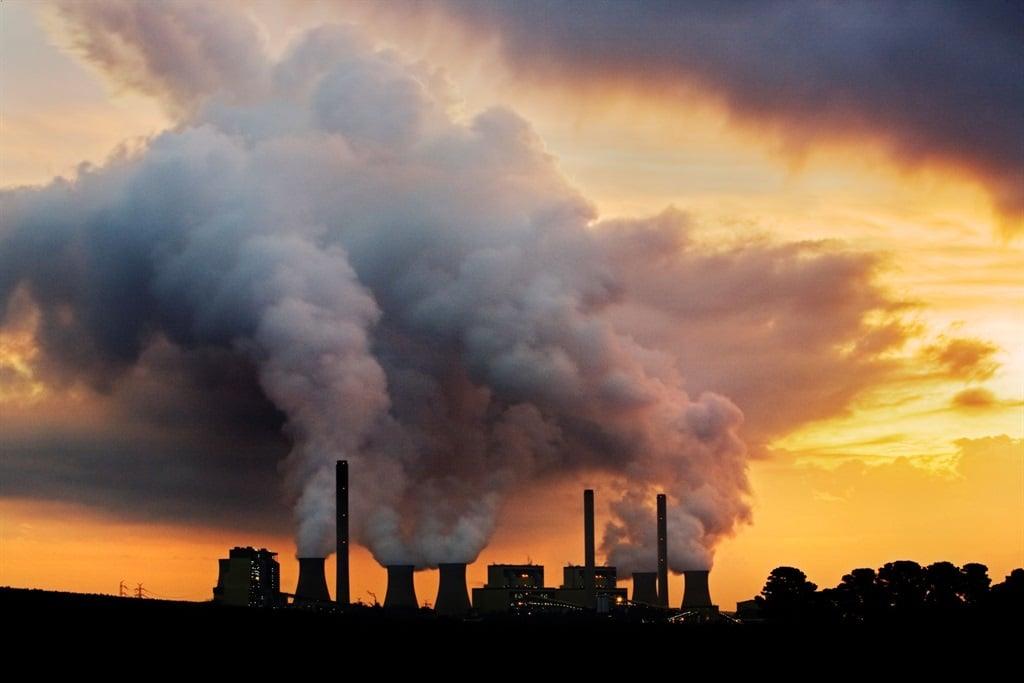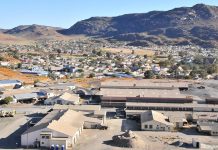Africa-Press – South-Africa. South Africa is the world’s 12th biggest source of greenhouse gases and environmentalists blame the country for its reliance on fossil fuels.
Hence, SA’s economy is increasingly threatened by the impact of climate change, resulting in a scarcity of important natural resources.
To respond to these challenges, industries need to increase efforts to remain competitive, save scarce natural resources, protect the environment and prepare for the future.
As the country embarks on a just transition to a low-carbon, climate-resilient and environmentally sustainable economy, there is a clear window of opportunity to make critical energy and water services more climate resilient.
SADC countries, such as Zimbabwe, Mozambique, Zambia and Botswana, are also heavily reliant on coal, like South Africa.
With the 2022 United Nations Climate Change Conference (COP27) in a few days, their coal usage will be under the spotlight.
South Africa will arrive at the COP27 with an offer of about R153 billion (US$8.5 billion) for its clean energy shift, which was made last year at COP26 in Glasgow, Scotland, in the United Kingdom.
There are loans offered by Germany and France, while the United Kingdom is behind mobilising private funds for the initiative.
A lot of ground has been covered. The South African government and the United Nations Industrial Development Organisation (UNIDO) – a specialised agency with a unique mandate to promote and accelerate sustainable industrial and economic development – are doing their part to foster digital and green transitions and accelerate progress with the Sustainable Development Goals.
News24 spoke to Dr Blanche Ting, the energy and low carbon coordinator of UNIDO, about their work with the SA government.
Dr Ting: It is not UNIDO’s place to tell the government what to push for. Firstly, there is the UN Sustainable Development Cooperation Framework (UNSDCF), which aligns the work of the UN with government priorities (NDP and MTSF Medium Term Strategic Framework).
It provides strategic areas of priority, alignment and collaboration. One of these pillars is climate resilience and sustainably managed natural resources.
Implementation is through joint work plans agreed upon with the government and relevant UN agencies.
News24: There is the Low Carbon Transport (LCT) project you are working on with the government. What is it about?
Dr Ting: The primary source of transport-related Carbon Dioxide (CO2) emissions in SA is road transport. The sector relies on fossil fuels, contributing 10.8% of the country’s total greenhouse gas emissions – road transport is responsible for 91.2% of these emissions.
The objective of the LCT-SA project was to advance energy-efficient low-carbon transport systems for improved energy consumption and mobility practices in South Africa.
Its aim was to promote the widespread use of electric vehicles (EVs). The project focused on the improvement of policy and regulatory frameworks for EVs use, institutional capacity development, and demonstration of infrastructure.
We installed seven charging EV stations around the country. Three of the stations are grid-tied, so they can inject surplus energy into the grid.
We also published a report on opportunities to develop the lithium-ion battery value chain in South Africa.
This has contributed to the Department of Trade, Industry and Competition’s work on the South Africa Renewable Energy Masterplan (SAREM).
News24: Tell us about the deep decarbonisation of the hard-to-mitigate sectors?
Dr Ting: During the “Decarbonisation Day”, taking place on November 11, discussions will focus on approaches, policies and technologies for energy-intensive sectors and companies to encourage and facilitate the much-needed transition and paradigm shift towards a low carbon economy.
As a key partner in the COP27 Decarbonisation Day, UNIDO will work with the Ministry of Trade and Industry, the lead coordinating ministry for the day, in the lead-up to COP to undertake consultations and bring perspectives of largely African and other developing economies on their opportunities, needs and priorities for industrial decarbonisation.
UNIDO is currently consulting with various policymakers and industry players from large economies in Africa (Egypt, Ghana, Morocco, Nigeria and South Africa), Asia Pacific and Latin America and the Caribbean to discuss the opportunities for and needs of developing countries in the deployment of low carbon innovations at commercial scale in the steel, cement and chemical industries in this decade, to remain in line with net-zero targets.
The steel, cement, and chemical industries are essential elements of the global economy and development aspirations.
They provide key materials that can be used more efficiently, but are also irreplaceable for key needs in the foreseeable future.
Collectively referred to as heavy industries, they contribute to 70% of the industry’s 9 Gt CO2 direct emissions and one-quarter of all energy and process carbon emissions.
News24: There’s talk of the revival of industrial parks as a climate change agenda in SA. What is the long-term plan?
Dr Ting: There’s a project, entitled “Sustainable energy systems for urban-industrial development in South Africa”, which will be implemented in the first quarter of 2023, focusing on reducing GHG emissions and environmental impacts through the decarbonisation of industrial parks.
The project is funded by the Global Environment Facility and executed by the NCPC-SA. This project aims to support South Africa in initiating a transition to sustainable energy investments and practices at industrial production facilities.
News24: What are the challenges faced in focusing on the water-energy nexus in the agro-processing sector?
Dr Ting: Currently, there are no estimates available for the energy intensity of the water cycle in South Africa, either at a national level or for cities.
By global estimates, it is estimated that between 2% and 3% of the world’s energy consumption is used to pump and treat water for residential, commercial and industrial use.
Thus, the generation of data in terms of water and energy consumption, for example, in specific industrial settings, would be key to understanding the unique energy intensities of the different elements of the water use cycle.
Moreover, energy efficiency improvements in the water use cycle would alleviate shortages, waste and unsustainable patterns of use.
For More News And Analysis About South-Africa Follow Africa-Press






